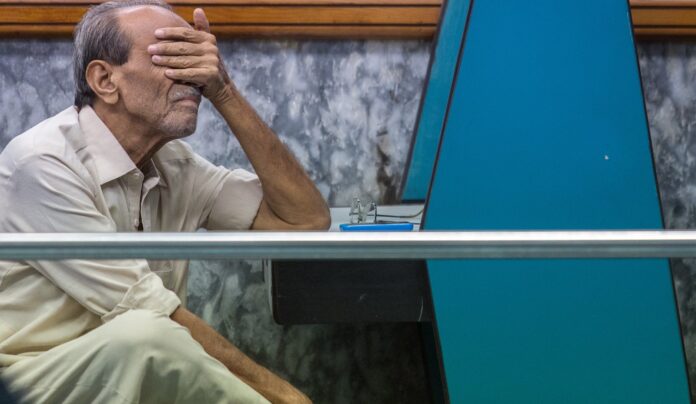LAHORE: Leading businessmen and economists believe Pakistan is moving from stagflation to recession amid the coronavirus (COVID- 19) pandemic in the country.
Talking to Pakistan Today, leading industrialist Waleed Tariq Saigol said the country is headed towards a recession owing to the unprecedented disruption caused by the virus.
“The world has taken measures to survive for 2-3 months in the current lockdown mode. Anything longer or a second wave of infection would send things into a further tailspin. This will be catastrophic for the global economy as well as for emerging markets like Pakistan. Exports, remittances, jobs etc. will all be badly hit,” he feared.
The industrialist believed that a global recession right now is a nightmare scenario for emerging market economies, as these are highly dependent on developed markets for capital inflows.
Meanwhile, economic expert and tax consultant Dr Ikramul Haq believed that the country is already in recession following a long period of stagflation. “Even before the coronavirus outbreak, the economy had fallen due to onerous taxation, high interest rates and skyrocketing inflation post the signing of International Monetary Fund (IMF) programme,” he maintained.
Dr Haq explained that technically, a temporary recession is defined as a period of economic decline during which trade and industrial activities are reduced, generally identified by a fall in Gross Domestic Product (GDP) in two successful quarters.
“Our economy has been contracting for the past several months. After the imposition of lockdowns, we are in deep recession.”
Dr Haq suggested that if the government wants to avoid further stagnation after lockdowns, Prime Minister Imran Khan must announce a comprehensive relief plan for real estate, housing and construction sectors.
“These sectors should be given at least a 10-year tax holiday.”
He continued that the said relaxation is of utmost importance as over 40 industries are linked to the construction industry, adding that time is appropriate for the government to provide the real estate sector with a much-needed boost.
“The construction industry in return must provide complete social protection and universal entitlements to their workers as it absorbs both skilled and unskilled workforce at massive level and fully documents its affairs.”
He said that no protection should be given to any kind of tainted money.
Agreeing with them, Ghazanfar Azzam, President and Chief Executive Officer (CEO) at Mobilink Microfinance Bank, said not just Pakistan, the world economy as a whole has already entered into one of the most severe recessions ever experienced.
Azzam feared that each and every day would bring new challenges in terms of job losses, falling production, declining trade, collapsing healthcare and food security.
“We need to implement better discipline, ensure social distancing, and seal our borders till the pandemic is over. At the moment, the focus should be to save people from disease and hunger.”
Adviser to Punjab Chief Minister and seasoned economist Dr Salman Shah also feared that the lockdown of factories would lead to a collapse in jobs, income and consumption.
“The economy will move into a dangerous imbalance of demand and supply.”
Talking to this scribe, All Pakistan Textile Mills Association (APTMA) Patron-in-Chief Gohar Ejaz said the government needs to spend on the health sector and also need to draft policy to help the private sector retain jobs. Otherwise, as highlighted by PM Imran, the impact on jobs would be bigger than the health crisis, Ejaz feared.
Economist Hina Ayra said the only realistic response is a lockdown with complete focus on the supply of essential items. She said that the poor should be given maximum financial support either in the form of cash or ration to avoid social disorder, and that the hospitals should be stocked with all necessary medicines along with helping doctors and paramedics.
SCS Securities CEO Naushad Chamdia noted that as per the IMF, Pakistan is already in recession.
“This virus will bring the whole world economy down. Many economists see China as a world superpower as we come out of this crisis,” Chamdia predicted. “The only positive I see for Pakistan is that we are one of the closest allies of China, which could be beneficial for us in the long run.”
Dr Asad Zaman, member of the State Bank of Pakistan’s Monetary Policy Committee (MPC) said that the public is clamouring for a rate cut, but it would be a wrong move. He said that the rates have already been cut dangerously low – discount rate is like an elephant gun which has massive impact throughout the economy on exchange rate, FX reserves, liquidity ratios at banks, government budget deficits etc.
“To handle Covid-19, we need precise measures aimed at tackling the problems created by this emerging crisis – there is no ‘one shot cures all’ approach,” he maintained.




